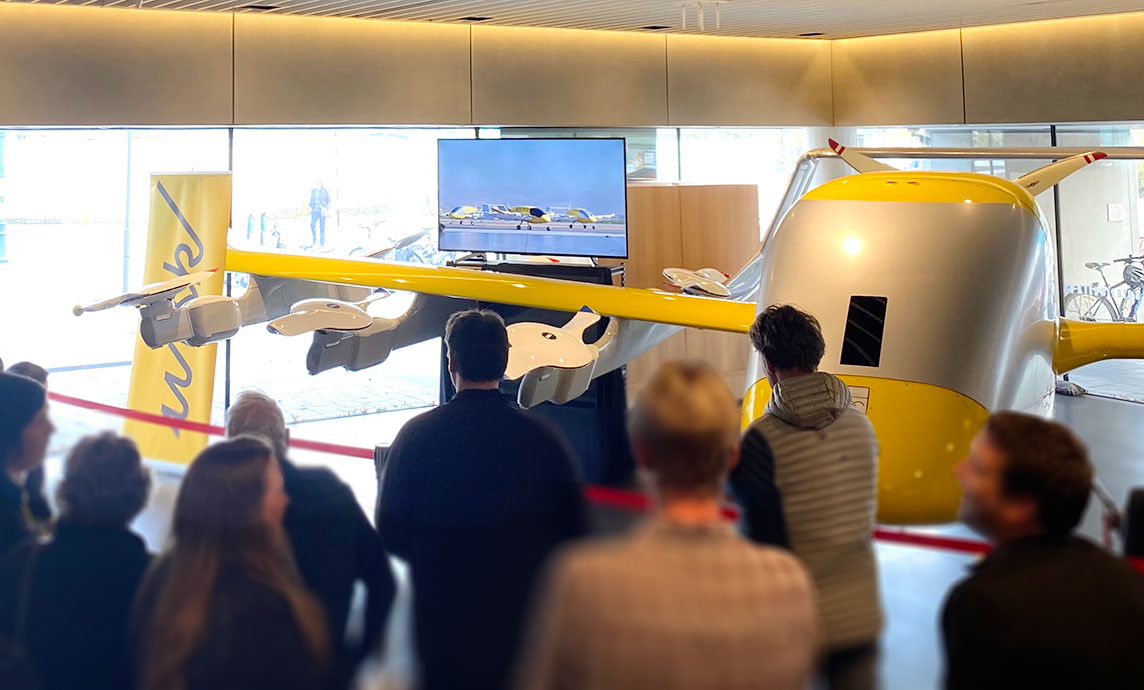By Anna Kominik, Wisk’s Asia Pacific Region Director
In April, we publicly presented our aircraft for the first time in Christchurch, Canterbury New Zealand. The event was part of Christchurch City’s Take Charge event to celebrate the city’s moves to introduce e-transport – in all its forms. The country of New Zealand is working steadily towards ambitious goals to be net carbon zero by 2050 and reliant on wholly renewable energy by 2030. It is a vision that is generating huge interest from electric vehicles, including aircraft, as new forms of transport and mobility seek to establish their place in an ecosystem that is better for communities and kinder to the planet.

At Wisk, we are at the forefront of that movement in New Zealand. We understand that our mission is not only to build an aircraft that flies people around safely, we are also working with communities, businesses and government leaders on how best to shape this new environment.
A key part of Wisk’s way has been to involve, engage and listen to our future customers and employees from the start. In New Zealand, that has meant working with the New Zealand Māori tribe Ngāi Tahu, businesses and communities of interest and place. It is a process of listening, understanding and adapting our thinking and actions in response to those engagements.
As my colleague Jeannie Lam, said in her blog on Finding the Customer’s Voice:
“Wisk is infusing the customer voice throughout our product and go-to-market strategy. We recognise that engaging consumers early on is absolutely essential, and what better way to do that than show them our aircraft and hear their views on what they love and are worried about. Wisk’s recent customer research Autonomous UAM: Taking Mobility to New Heights helps to frame the expectations and the need.”
We went into the Take Charge event expecting a range of questions and comments, but every now and then we received a less frequently asked question. A reminder that no two people think and feel the same. For myself and the New Zealand team there were two big takeaways from the event.
-
- 1. The value of enabling people to see things up close and talk to the experts
- 2. The importance of meaningful conversations — taking time to talk, share and listen builds understanding — on both sides
In Christchurch, thousands of people turned out to see our aircraft and talk to the team. They loved that our Wisk aircraft has the potential to easily take off and hop across a city. They were excited that they didn’t need to know anything about flying a plane and that it would be all-electric, helping to build a sustainable world. The questions people asked also suggested they were envisaging how they could use it in the future or how it would integrate with other transport modes.
It wasn’t just younger generations who saw the many benefits, there was just as much excitement and interest from those who recalled their parents talking about the advent of the automobile.
Technologies like Wisk’s change our expectations and our opportunities — and it takes work to think those through. However, history teaches us a lot. Just look back 100 years to when the first automobiles were making their way through the horses and carts on a busy metropolitan street. The integration of that technology — the noise, the infrastructure — all had to be thought through. As Alexander Winton, one of the legends of the US automotive industry explained in his 1930 article, Get a Horse, there were no paved highways for automobiles to shoot along at, there were no gas stations, “just country roads, filled with ruts, sand, and mud, over which no one wanted to drive”. At the beginning of the automotive revolution, everything had to be built.
The advent of the autonomous eVTOL is no different. There are many questions that need to be answered. And it takes leadership to start and continue those conversations.
So, as Wisk works towards introducing our aircraft to the world, we continue to talk with our future customers, policy makers and communities, because this is about making sure the right people come together at the right time and in the right place — to create something special for everyone.